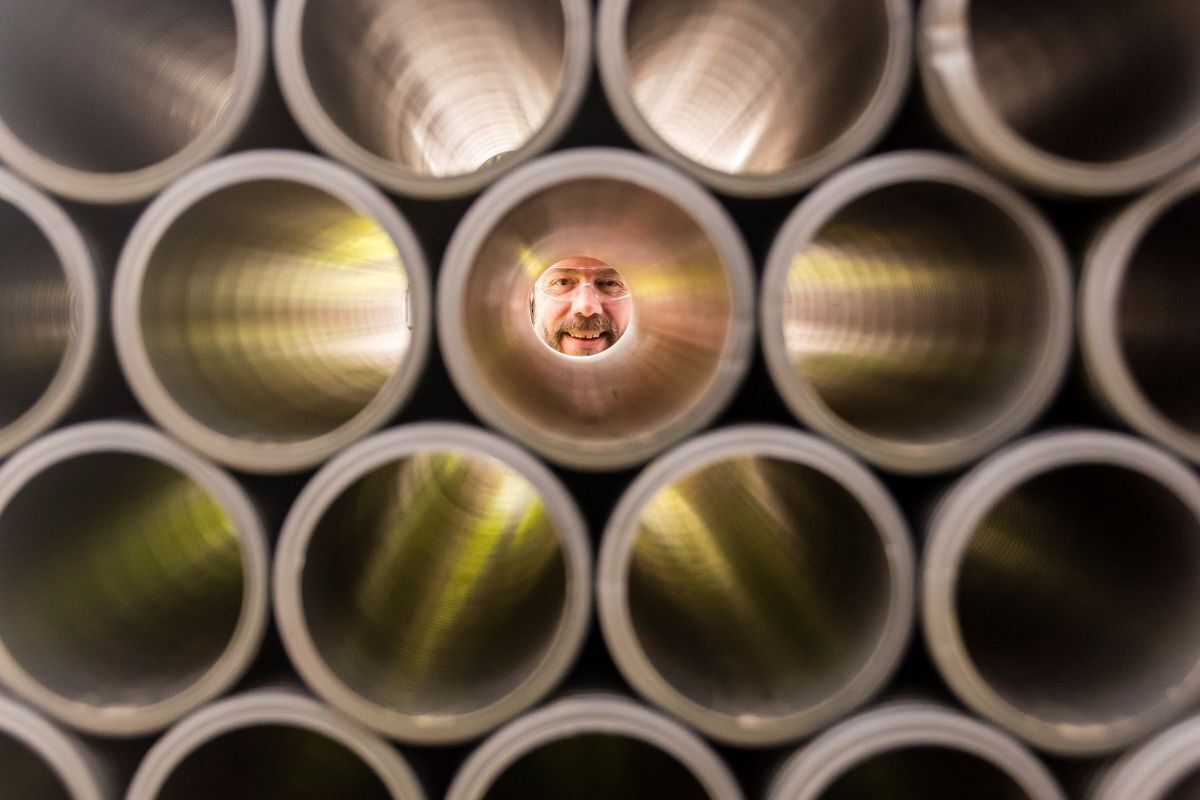UK Power Networks commits to circular economy transition
UK Power Networks who own and run the cables and substations which deliver electricity to 8.5 million homes and businesses across London, the South East and East of England are committing to measure its activity to contribute to a circular economy transition.

Projects such as using low carbon concrete made with waste materials, including fly ash where it is suitable, are part of the electricity firm’s continued drive to eliminate waste, pollution and drive down carbon emissions.
The firm will now measure and track its progress using Circulytics, the circular economy performance measurement tool launched by the Ellen MacArthur Foundation, an international charity that develops and promotes the idea of a circular economy.
A circular economy is built on three principles, all driven by design: eliminate waste and pollution, circulate products and materials and regenerate nature.
This approach has already seen UK Power Networks engage with companies across its supply chain, to establish what they are doing and what they plan to do, to support the circular economy. The company is also working with its suppliers to better measure carbon emissions in its supply chain.
As an electricity network running essential infrastructure, UK Power Networks buys electrical equipment, like transformers and cables, which help deliver reliable electricity supplies across the communities it serves for a long time and valuable materials are recovered when they reach the end of their useful life.
Mark Norman, head of environment and sustainability at UK Power Networks, said:
“The world does not have an endless supply of raw materials as recent resource constraints have clearly demonstrated. So, every business should be thinking about the untapped economic potential of the circular economy to extend resources, reduce embodied carbon, regenerate nature, and increase supply chain security.
“As a vital infrastructure provider, it is essential we start adopting a circular economy model, so products are re-designed to drive out waste, reduce the use of virgin materials, are capable of being repaired, reused or dismantled for strategic spares and fed back into the supply chain.
“We have a large supply chain that we can positively influence. We cannot make the changes needed in isolation, so we are seeking to work in partnership with our key suppliers.”
Some already established circular economy processes include:
- Recovering for re-use 99.8% of its streetworks spoil
- Using 60% low carbon concrete compared to three years ago, reducing carbon and resources
- Using 280km of electricity cable ducts (pipes) using recycled materials
- Working with reprocessing facilities to recycle metals and other materials from distribution equipment such as transformers and switchgear
- Collaborating with Personal Protective Equipment supplier to replace plastic packaging with recycled alternatives, eliminating plastic waste for over 7,300 items per year
- Replacing hard plastic casing around power tools with cardboard packaging
- Introducing 2,000 reusable water bottles, resulting in a 33% reduction of single use plastic bottles
- Using second-hand furniture where possible at a new site in Borehamwood and choosing energy and water saving equipment in office refits
Dale Evans, general manager from C Soar and Sons, which dismantles and recycles electrical equipment for UK Power Networks, said:
“All UK Power Networks’ redundant electrical equipment including transformers, switchgear and cabling is recovered at our facility, and over 98.5% of all material is recycled and sent off for reuse. We are fully aligned with UK Power Networks’ aspirations for a circular economy and look forward to helping them to progress towards their sustainability goals.”
The Ellen MacArthur Foundation was launched in 2010 to accelerate the transition to a circular economy in order to tackle some of the biggest challenges facing the world today, including climate change, biodiversity loss, waste and pollution.